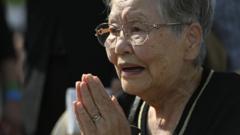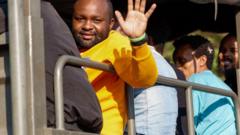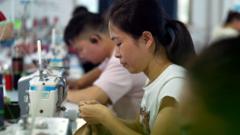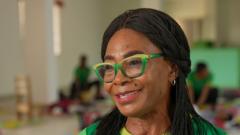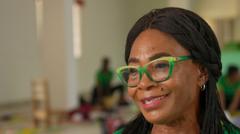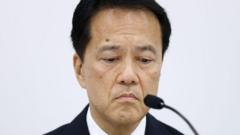As the world reflects on the atomic bombing of Hiroshima, the plight of Korean survivors and their descendants remains overshadowed. Having faced discrimination, ongoing health issues, and a lack of acknowledgment, these survivors strive for recognition and justice—a fight still unresolved 80 years on.
Echoes of Hiroshima: The Silent Suffering of Korean Survivors

Echoes of Hiroshima: The Silent Suffering of Korean Survivors
Eighty years after the Hiroshima bombing, the lingering pain and stigma of Korean survivors reveal a forgotten chapter of history and a call for justice.
At 08:15 on August 6, 1945, a nuclear bomb fell over Hiroshima, irrevocably altering the lives of many. Among those profoundly affected was Lee Jung-soon, now 88, who remembers fleeing alongside her family. "They say the streets were filled with the dead," she reflects, unable to escape the haunting memories of her childhood experience during the devastation that claimed approximately 70,000 lives instantly, with countless others perishing months later from the aftereffects.
While much of the focus surrounding the bomb's aftermath centers on Japan, around 20% of those impacted were Koreans. At that time, Korea was under Japanese control, and many Koreans in Hiroshima had been conscripted into labor or migrated to find better living conditions. Now, those who survived are still dealing with a heavy legacy of illness, discrimination, and a long-overdue quest for justice.
In Hapcheon, South Korea—often referred to as "Korea's Hiroshima" due to the number of survivors residing there—individuals like Shim Jin-tae, 83, voice their frustration at the lack of responsibility taken by Japan, Korea, and the U.S. "No one takes responsibility," Shim feels, emphasizing the profound silence surrounding their suffering. For many, the physical scars carry painful health implications and memories that continue to plague their families. As Ms. Lee battles skin cancer and cardiovascular disease, her son Ho-chang faces kidney failure, attributing their woes to radiation exposure, a link difficult to substantiate scientifically.
Survivors and their descendants grapple with societal stigma upon returning to Korea, where they are often viewed as disfigured outcasts. This perception extends to their children, with many suffering from health problems themselves. For example, Han Jeong-sun, a second-generation survivor, has faced isolation and adversity while raising a child with cerebral palsy. Decades of neglect from the South Korean government continue to frustrate these communities, as their calls for acknowledgment remain unheeded.
Recent developments have seen a renewed focus on these survivors, but the battle is ongoing. The Ministry of Health and Welfare in Korea is conducting studies on genetic impacts for second and third-generation victims, yet financial support and outright acknowledgment have lagged. "Memory matters more than compensation," insists Shim, urging that the pain and stories of survivors must not be forgotten.
A notable moment occurred recently when Japanese officials made an official visit to Hapcheon, the first of its kind. However, activists like Junko Ichiba stress that peace without acknowledgment and apology means little. While Japan has seen some expressions of regret from past leaders, many Koreans feel these gestures fall short, and historical injustices remain hidden from public consciousness.
As the world moves through another year with the weight of Hiroshima's history, the stories and experiences of survivors like Lee and Shim serve as a reminder of the ongoing struggle for recognition and justice for those affected by nuclear violence. Not only their bodies remember the horrors of that day, but also the deep wounds they represent must be acknowledged to prevent history from repeating itself.


